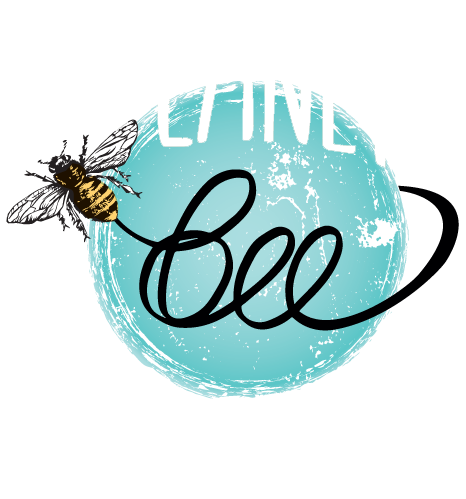
RESOURCE LIBRARY
WELCOME TO PLANET BEE FOUNDATION'S RESOURCE HUB
Welcome to the Planet Bee Foundation's innovative resource hub, designed to empower educators and bee enthusiasts alike on their journey to understand and conserve our precious pollinators.
Interactive Learning and Community Science
Dive into our dynamic resource library, featuring asynchronous lessons, meticulously crafted lesson videos, and scripted lesson plans, all geared towards fostering a deeper understanding of the vital role bees play in our ecosystem. Explore our Native Bee Community Science Projects, where participants can actively contribute to bee research and conservation efforts while engaging with supplemental materials such as worksheets, games, and interactive activities for classroom learning and exploration.
Exploring Bees and Beekeeping
Our resource hub offers a wealth of knowledge for those intrigued by bees and/or beekeeping. Discover beginner-friendly guides, instructional videos, and tips from seasoned beekeepers alongside broader information about supporting bees, creating pollinator gardens, and understanding bee decline. Join us in advocating for bee conservation and cultivating a future where bees thrive, and our planet flourishes.
Interested in becoming a corporate sponsor to support a school program? Please contact partners@planetbee.org.
Backyard Beekeeping
Embark on the journey of backyard beekeeping. With careful planning, education, and dedication, anyone can become a backyard beekeeper. The beekeeper has a few vital items in their arsenal - here's the basic list.
Bee Friendly Gardens
Planting a pollinator garden is vital for the survival of honey bees and native bee species. These buzzing creatures rely on nearby flowers for nectar and pollen, and when floral resources are scarce, bees can face starvation.
Beeyond HarvestED Digital Toolkits
Our new dynamic asynchronous classroom garden and agriculture program cultivates sustainability through a Soil, Bees, Seeds, and Food Program. It includes 5 Asynchronous Digital STEM Toolkit Units and educational materials grants to schools nationwide.
Coding for Conservation
LAUNCHING IN FALL 2025!
Bring coding and environmental science to your classroom—no prior experience required! This CSTA and NGSS-aligned program guides students to code BBC Micro:bit sensors, install them in native bee houses, and collect real-world data, blending STEM learning with hands-on conservation.
How to Help Bees
Supporting bees and local pollinators is un-bee-lievably easy as planting a flower! Bees are crucial for supporting local ecosystems and our food systems through pollination. Find out what you can do to help.
How to Make a Seedball
Learn how to make a seed ball filled with natural clay, seeds, and soil. It's a fun and easy way to plant flowers as food for bees.! This ancient agricultural technique was pioneered by Masanobu Fukuoka, a Japanese philosopher and natural farmer born in 1913.
Lesson Plans For Teachers
Bees are bee-yond important to our ecosystem, which is why sharing the news with the next generation is critical! These standard-aligned lesson plans are the perfect guide as you explore the world of honey bees & native bees with your students.
Make a DIY Native Bee Home
Help support native bees by building their homes from up-cycled materials! Create the perfect habitat right in your own backyard. Building a DIY native bee nest home is simple and has a huge impact on our fuzzy friends.
Native Bee Basics
Discover the vital role native bees play in our ecosystems and how they contribute to environmental health. These fascinating creatures may look different from honey bees, but they are essential for biodiversity and pollination.
Native Bee House Seasonal Care Instructions
Caring for a native bee house throughout the seasons involves specific steps to ensure the health and safety of the bees. Here are detailed instructions for each season.
Native Bee Science for Schools
This community science project delves into the fascinating world of native solitary bees. Students learn to make a native bee nest home and monitor them to collect data. This program includes asynchronous materials and the opportunity to register for live synchronous lessons.
Natural Pest Control
In the battle against garden pests, many gardeners are turning to natural pest control methods to maintain a healthy balance in their ecosystems. Rather than relying on harsh chemicals that can harm beneficial insects and the environment, natural pest control methods utilize nature's own mechanisms to keep pest populations in check.
Plant for Pollinators
Planting pesticide-free pollinator gardens ensures year-round access to nutritious food for nearby beehives, fostering their health and resilience. They also provide vital sanctuaries for native bees, supporting their crucial role as pollinators in the ecosystem.
Student Activities & Games
Take your students’ learning a step further with our supplemental activities! The pollinator matching game, bees and wasps game (think sharks and minnows), and food web activity are sure to keep students engaged and excited while they learn about the environment.
Student Worksheets & Hand Outs
Planet Bee provides a variety of worksheets that encourage students to continue learning beyond our lessons. Get your class excited about bees by sharing our bee anatomy handouts, scavenger hunts, coloring sheets, and more!
Teaching Resources
Bring Bee Education and STEM Principles into your classroom! Our Digital Resources include videos, teacher guides, activities, and games designed to deepen understanding of bees' essential roles and environmental significance.
The Importance of Solitary Bees
Meet nature's silent superheroes! While they work solo, they're the backbone of our ecosystem. From the fruits we savor to the veggies we crunch, and even the seeds we sow, these solitary champions ensure it all. They're not just pollinators; they're the unsung heroes behind our food, medicine, fibers, fuels, and more!
We Need Bees
We need bees now more than ever. Let's protect our precious pollinators, preserving the balance of our ecosystem and securing our food systems.
Reset Filter



















